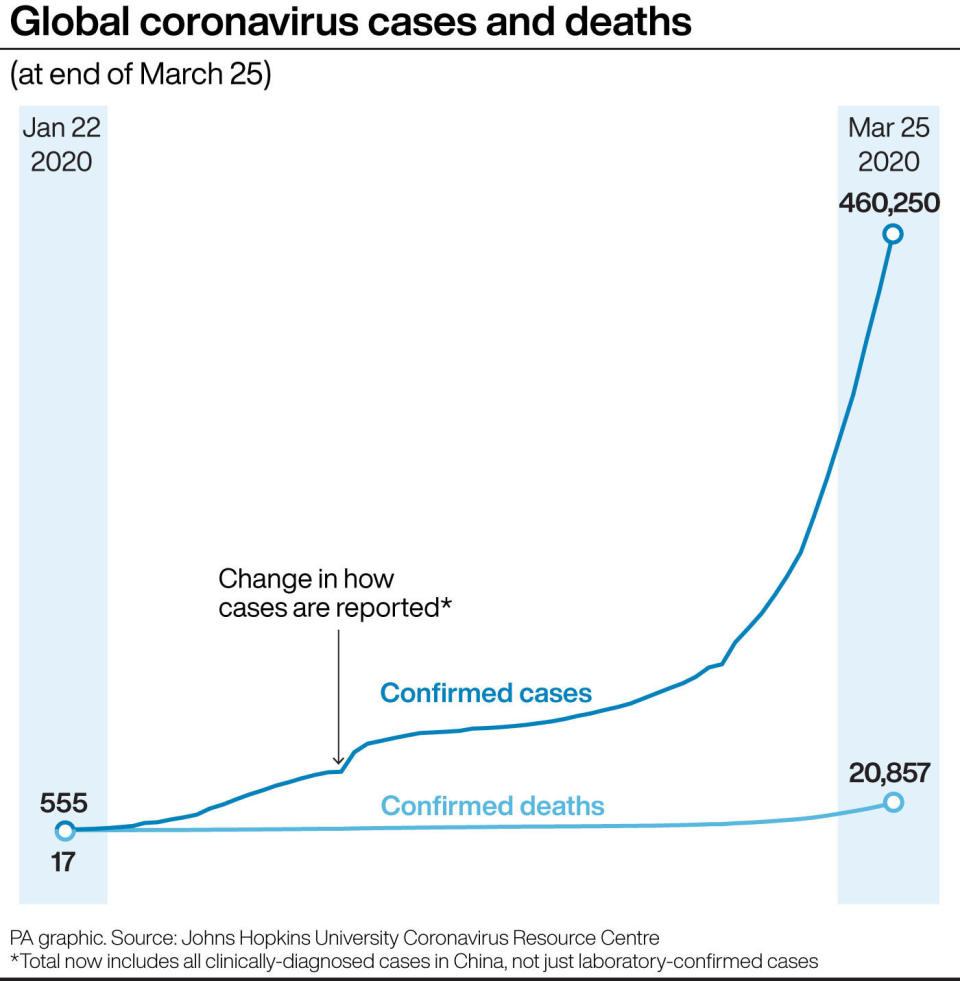Coronavirus: Without interventions, 40 million people would die from virus, report finds

If no measures were taken to stop the spread of coronavirus, the pandemic would result in 40 million deaths across the world this year, a report has found.
The report from the Imperial College COVID-19 Response Team estimated that in the absence of any interventions, the virus would lead to seven billion infections worldwide.
For the UK, it predicted that if no measures were put in place, 591,887 lives would be lost, with 58,995,235 infected.
The report comes as countries across the world - including the UK - are in a state of ‘lockdown’, with travel restricted, businesses closed and people urged to stay at home to limit the spread of the disease.

The study, which used data to predict the differences in estimated infection rates and deaths if no measures were put in place to limit the spread of the disease and if efforts like social distancing were put in place, analysed the health impact on 202 countries.
It predicted that ‘mitigation strategies’ could reduce the number of people affected by half, potentially saving 20 million lives, but even in that scenario countries’ health systems would be overwhelmed.
Latest coronavirus news, updates and advice
Live: Follow all the latest updates from the UK and around the world
Fact-checker: The number of COVID-19 cases in your local area
Explained: Symptoms, latest advice and how it compares to the flu
It said: “We estimate that in the absence of interventions, COVID-19 would have resulted in 7.0 billion infections and 40 million deaths globally this year.
“Mitigation strategies focussing on shielding the elderly (60% reduction in social contacts) and slowing but not interrupting transmission (40% reduction in social contacts for wider population) could reduce this burden by half, saving 20 million lives, but we predict that even in this scenario, health systems in all countries will be quickly overwhelmed.”
The report also suggested that the effect would be more severe in ‘lower income settings’.
“Our analysis therefore suggests that healthcare demand can only be kept within manageable levels through the rapid adoption of public health measures (including testing and isolation of cases and wider social distancing measures) to suppress transmission, similar to those being adopted in many countries at the current time.
“If a suppression strategy is implemented early (at 0.2 deaths per 100,000 population per week) and sustained, then 38.7 million lives could be saved whilst if it is initiated when death numbers are higher (1.6 deaths per 100,000 population per week) then 30.7 million lives could be saved.
“Delays in implementing strategies to suppress transmission will lead to worse outcomes and fewer lives saved.
“Our analysis highlights the challenging decisions faced by all governments in the coming weeks and months, but demonstrates the extent to which rapid, decisive and collective action now could save millions of lives.”

 Yahoo Finance
Yahoo Finance 

